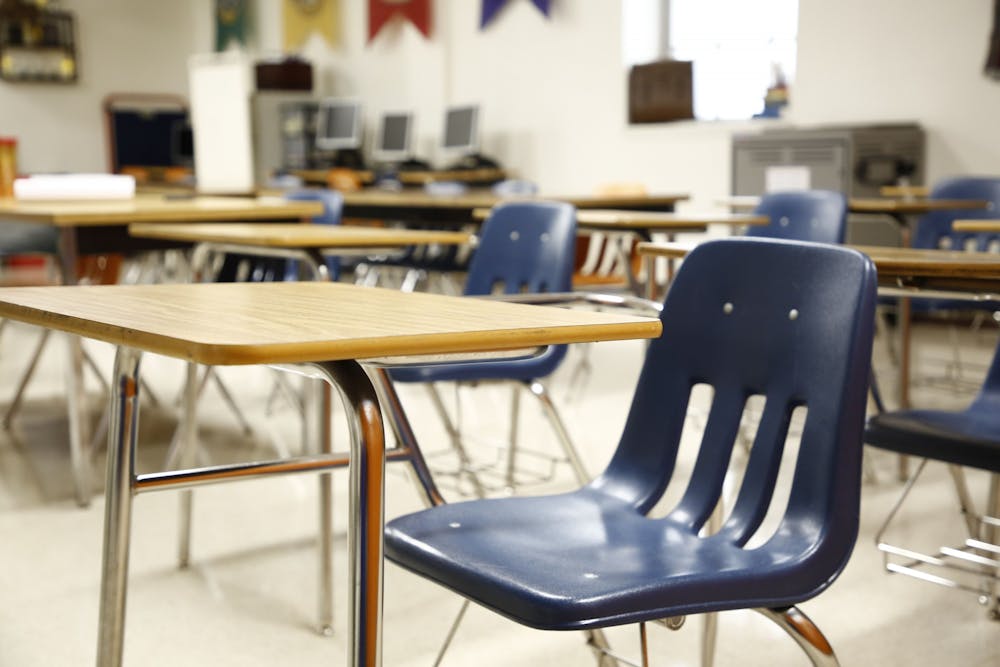The College Board last month canceled the SAT until September due to the COVID-19 pandemic. American College Testing Inc. canceled its ACT testing in April, though its June 13 exam remains scheduled.
At least 40 universities across the country have responded to these testing cancellations by waiving SAT and ACT requirements for the graduating high school class of 2021.
For the next graduating class of high school students, the SAT and ACT are largely irrelevant. They should never be relevant again.
Universities need to work harder to find a holistic approach to evaluating student achievement in college admissions while limiting the influence of racial and economic inequalities. This starts with putting an end to unfair, purposeless and archaic standardized tests.
For almost a century, taking the SAT has become a rite of passage into higher education. More than 2 million high school students took the SAT in 2019, according to the College Board. Similarly, the makers of the ACT reported nearly 1.8 million high schoolers took their exam last year. These figures represent more than half of the 2019 graduating class, according to the ACT report.
Despite these large numbers, the culture surrounding standardized testing in the U.S. has been changing in recent years.
More than 1,000 colleges and universities, including IU-Bloomington, have waived the SAT and ACT as requirements for admission. Colleges across the country have adopted these policies to include more low-income and first-generation students in their student populations.
Students from high-income families are given an unequal edge in achieving high scores on standardized tests. For example, 10 hours of one-on-one SAT tutoring sessions from the Princeton Review cost $2,600. Bob Schaeffer, the public education director at FairTest, an educational advocacy organization, estimates that students who work with a private tutor spend as many as 30 hours on test prep.
The federal indictment of William Rick Singer last year exposed just how inequitable standardized testing has become. Wealthy parents paid Singer a collective $25 million to pay professionals to take the tests for their children and to bribe test proctors to fix incorrect answers, allowing their children to gain admission into elite universities.
Moreover, standardized test results are divided along racial lines. The Brookings Institute found in 2017 that the average SAT scores for African America and Latino students are significantly lower than the average scores of white students. Similarly for the ACT, the majority of minority, low-income or first-generation students only met one or zero of the four College Readiness Benchmarks.
The ability of the SAT and ACT to be predictive of student achievement while in college has also come under scrutiny. In 2016, a report by the National Association for College Admission Counselors reported that the variable that generally reflects the strongest correlation with college academic achievement is high school GPA — not test scores.
A barrier to ending the SAT and ACT is that the test prep industry was valued at $1.2 billion in a report by IBISWorld in 2020. Test prep companies serve a significant self-interest by preserving the relevancy of these tests in admissions offices.
To better address socioeconomic inequalities, the College Board announced in 2019 that it would begin to include adversity scores along with SAT results. However, critics of the adversity score said that it did not measure for the biggest disadvantage of all – the income and educational level of parents. As a result, the College Board was forced to scrap the initiative due to fierce backlash.
Racial and economic inequalities often have a greater effect on students’ SAT and ACT scores than their own aptitude. This fact alone should prompt universities committed to equity and improving the conditions of minority and low-income students to abolish these tests once and for all.
Ian Nowlin (he/him) is a sophomore studying law and public policy. He has minors in Spanish and Arabic.






